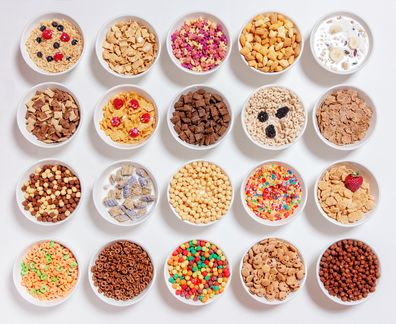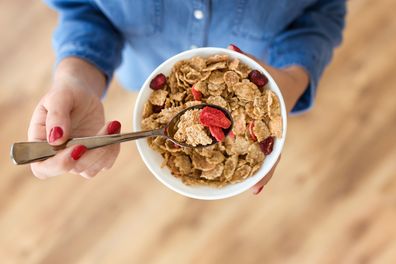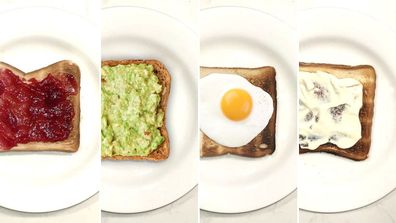In the world of diet and nutrition, breakfast cereal has coped a beating over the past few years. Often assumed as high in added sugars, it seems many of us have replaced our trusty bowl of cereal with other protein-rich options to break the overnight fast. While there are some sugary, highly processed cereals on the market, especially those developed with children in mind, generally speaking cereal remains a nutrient-rich way to start the day. All you need is to follow a few simple steps to ensure you are choosing the best option for your dietary goals.
What does breakfast cereal offer?
Breakfast cereal has much to offer nutritionally.

Not only is a wholegrain cereal a source of good quality carbohydrates for energy, but a daily bowl of breakfast cereal offers a significant proportion of dietary fibre, a nutrient that is crucial for gut health and one that fewer than half of all Australians achieve their recommended daily intake of. An adult requires at least 30g of dietary fibre every day to support heart and digestive health, and to reduce the risk of developing a number of lifestyle diseases — including heart disease and some types of cancer — and a bowl of high fibre breakfast cereal can offer up to 8-10g of dietary fibre per serve.
READ MORE: How to take control of your salty and sweet cravings
Wholegrain breakfast cereal is also a significant source of B group Vitamins which are directly involved in digestion and energy production, as well as a range of other micronutrients including Vitamin B, zinc, magnesium and iron.
READ MORE: 20 of Australia’s most-popular high-fibre cereals, ranked
Wholegrain is key
To reap the potential nutritional benefits breakfast cereal offers, the key is to choose wholegrain varieties. Wholegrain breakfast cereals include oats (100 per cent wholegrain) and other flakes, bites or granola mixes that offer a high proportion of wholegrains. The higher the wholegrain content, the higher the nutrient content of the cereal. Processed cereals range anywhere between 30-95 per cent wholegrain. Seeking out options that are at least 80-90 per cent wholegrain is a good starting point when choosing a nutritious cereal.
Minimise added sugar
Ideally, the breakfast cereals we choose will contain minimal, if any added sugars. Oats for example, along with Vita Brits are two of the few breakfast cereals which do not contain any added sugar. There is also a growing range of sweet breakfast cereals that have minimal added sugars, offering just 3-5 per cent or less than 5g of sugars per serve, instead use fruit, a small amount of natural sweetener or flavours like vanilla to achieve a little sweetness minus adding sugar itself.
READ MORE: High protein breakfast options that will keep you full for longer
Consider the pros vs. cons?
The sugar content of breakfast cereal is given a lot of attention and while that is one variable to be aware of, keep in mind that there are some breakfast cereals which offer nutritional value, and may not need to be completely discarded.

All Bran, for example, is one of the best foods we can eat for digestive health but it does contain added sugars. In this instance though, 7g of sugar is not so much overall and for a serve of more than 10g of good quality fibre any negatives outweigh the bad.
Consider how you are enjoying it
Consuming a large bowl of sugary cereal with extra honey, fruit and sweetened milk is not a nutritionally sound breakfast. It lacks dietary fibre and protein and has way too much sugar and refined carbohydrates for a satisfying breakfast.
On the other hand, enjoying a portion controlled serve of 1/3 -1/2 cup of good quality wholegrain and fibre-rich cereal with low-fat milk or high-protein yoghurt can be a balanced, nutrient-rich way to nourish your gut and break the overnight fast. Like many foods, it’s the company it keeps and the portions you enjoy that is also important to consider when ensuring your cereal choice is a fibre-rich addition to a healthy, balanced diet overall.
For a daily dose of 9Honey, subscribe to our newsletter here.
Author Susie Burrell is a leading Australian dietitian and nutritionist, founder of Shape Me, co-host of The Nutrition Couch podcast and prominent media spokesperson, with regular appearances in both print and television media commenting on all areas of diet, weight loss and nutrition.

